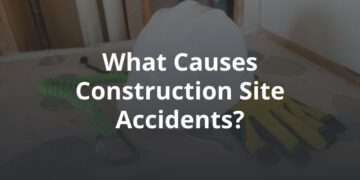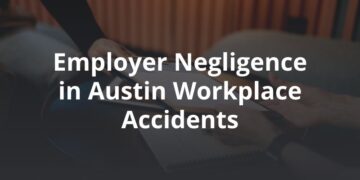“Mild traumatic brain injury” has become the recognized medical term for a concussion. But names can be misleading. Delayed concussion symptoms can severely affect their victims and are anything but mild. Head injuries aren’t only painful but may be expensive, requiring ongoing medical care.
Traumatic brain injuries, which include concussions, are one of the leading causes of mortality and disability in the United States, according to the Centers for Disease Control and Prevention (CDC).
Examining delayed concussion symptoms and other post-concussion health issues may help you understand how they could affect your life after experiencing a concussion injury.
What Causes Concussions?
A forceful hit or jolt to the head or body can result in a concussion, which causes the brain to shake, twist, or distort briefly inside the skull. These erratic movements can cause damage to brain tissue.
Common causes of concussions include:
- Sports that entail physical contact (boxing, rugby, soccer, football)
- Activities with a risk of high-impact falls (skiing, gymnastics, cycling)
- Violent offenses (physical assault, domestic abuse)
- Falls from great heights onto a hard surface
- Exposure to explosives or jarring forces during combat
- Accidents involving motor vehicles
In all cases, getting medical assistance is essential as soon as you notice symptoms of a concussion.
What Are the Symptoms of a Concussion?
Concussion symptoms generally manifest in four ways: cognitive, physical, emotional, and sleep-related.
The range of concussion symptoms is broad, but some of the most common may include:
- Brain fog or difficulty organizing one’s thoughts
- Trouble focusing
- Memory issues
- Headaches
- Hazy or blurry vision
- Dizziness
- Vomiting and nausea
- Difficulty with balance
- Being more susceptible to noise or light
- Lack of energy
- Agitation
- Depression
- Increased emotions
- Elevated levels of anxiety
- Getting less or more sleep than normal
- Difficulty falling asleep
People who have suffered a concussion may experience one or more of these symptoms. Along with changing over time, as the brain recovers or adjusts to the injury, symptoms may come and go.
What Are the Symptoms of a Delayed Concussion?
Most concussions cause at least a few symptoms to appear right away. But not all of them do.
Sometimes, concussion symptoms don’t appear for days or even weeks after the accident. This does not always imply that the injury has worsened. The initial symptoms may be so subtle that you do not notice them immediately. In fact, it’s possible that you didn’t know you had a concussion at all.
As the brain recovers and changes in response to the trauma, new symptoms may also appear.
Memory issues, headaches, exhaustion, and disturbed sleep are some common delayed concussion symptoms. However, the full range of symptoms described above might develop over time.
What is Post-Concussion Syndrome?
The condition known as post-concussion syndrome, defined by concussion symptoms that persist well past the customary week-to-month period for healing and recovery from a concussion, can also accompany or be connected to delayed concussion symptoms. Post-concussion syndrome symptoms might last for a year or more in some people.
According to the Mayo Clinic, medical professionals think that structural changes to the brain brought on by the original traumatic brain injury may be the cause of post-concussion syndrome.
Delayed-Symptom Concussions and Your Legal Rights
Your life and career may suffer significantly from a concussion with delayed symptoms. You might be able to file a lawsuit to get financial compensation to assist you in treating and living with your condition if someone else’s negligent behavior caused your injury.
A personal injury lawyer can provide you with legal options to pursue compensation if you sustained a concussion due to another person’s reckless or dangerous actions.
Contact Our Brain Injury Lawyer Law Firm in Austin, TX
If you’ve been injured in an accident in Austin and need legal help, contact our Austin brain injury lawyers at FVF Law to schedule a free consultation with our team.
FVF Law
3101 Bee Caves Rd #301, Austin, TX 78746, United States
(512) 982-9328







